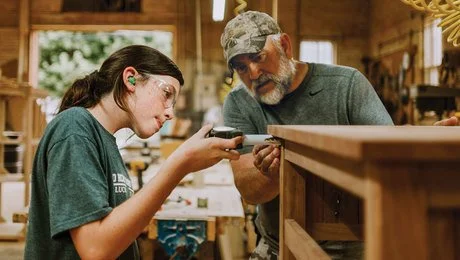PR Tips for the Trades
PR is an excellent tool to build brand reputation, customer awareness and trust but it’s one that is often neglected among skilled tradespeople. One of many reasons why PR should be a part of a tradesperson’s marketing tool kits is that too many people - myself included - have experienced a situation where the contracted worker doesn’t show up, the job goes horribly wrong, or you simply don’t know who to call. The result is wary clients looking for someone they can really trust to get the job done well.
Embedding Google reviews on your website is a great first step. It’s hard to argue with legions of satisfied customers, but as some businesses post fake reviews (a problem across many industries) prospective customers might be looking for additional sources to verify your expertise.
That’s where PR comes in. Taking proactive measures to increase your public profile can help sway new customers in your favour. Whether you’re a handyperson, plumber, lawn care provider, odd jobber, contractor, roofer, cabinet maker, refinisher, painter, fumigator, craftsperson, electrician, landscaper, auto technician, or other skilled worker, these tips can help you stand out from your competitors:
Host a YouTube series. If there’s one thing many people love, it’s a good how-to video. I know this can seem like a lot of work, but it doesn’t have to be. Creating a series of simple how-to videos is the ultimate way to demonstrate your skills. The key is to keep them straightforward and concise. These videos can build a loyal following and the benefits of that are two-fold.
It can attract customers who don’t want to do the simple fixes themselves. The video will give them the confidence that you know how to do the job right.
You can gain a loyal following of DIYers who might do the small fixes themselves but will look to hire a licensed expert when a job is too big for them to handle. Not to mention all the referrals that result from conversations that start with “I just saw a great video on how to…”
Pitch seasonally. Just like the seasons, your pitches should change to fit what’s relevant at the time. Pitching a story about lawn care in the height of a Canadian winter won’t land but winter is the perfect time to address how to prevent pipes from busting or how to plan for spring planting. Keep in mind that media have varying lead-times so be ready to pitch several weeks and even months ahead of when you want the story to appear. The easiest way to find out a publication’s lead-time is to call reception and ask.
Don’t forget, visuals are key for any great story. For print interviews, be sure you have high resolution photos that illustrate what you’re discussing. For TV, interactive interviews are the most interesting and engaging to watch. Before pitching, consider what you can demonstrate. You’ll get bonus points if it’s something the interviewer can learn to do alongside you.
Partner with a local school or organization to mentor others. Giving back to the community not only feels great, but it is an excellent way to build trust and increase customer loyalty. Word of mouth is powerful and word will get out. Plus, you can promote it via your website, on social media, at trade shows, and during speaking engagements at local business associations. Not to mention the added benefit of meeting a great talent pool of workers you may wish to hire in the future.
Become an expert columnist. Target your local newspaper or website for a monthly column where you can answer reader questions and talk about how to solve common problems. As a guest contributor, readers know you’ve been vetted by the publication’s editorial team and are considered an expert in your field. Plus, with your sound advice appearing in print on a regular basis, readers will grow to trust you, and your name will be the first to come to mind if they have a future project fitting your skillset. An added advantage is also the insights gleaned from reader letters. You can adjust your marketing and website to offer solutions that address them.
Most importantly don’t give up if your first pitch doesn’t land. Ask for feedback on why it was declined if it seems appropriate based on the response you receive. It can take time to successfully land a pitch, but in the interim, you’ll also be getting on the media's radar. They’ll remember your name and they might just reach out if they have a story that needs an expert in your trade.
For even more PR tips, check out my interview on Jobber’s Masters of Home Service podcast where I dive deeper into this very topic.



